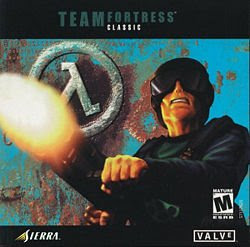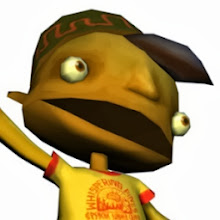 I don't know what happened to Rare in high school, but for a development house that would eventually turn out the Banjo, Donkey Kong Country, and Perfect Dark games, they seemed hellbent on showing everyone that western developers could clobber the Japanese when it came to making the most impossibly frustrating games imaginable. Now, I could just as easily have been setting up a review for Battletoads there, but at least Battletoads has an easy first level - Solar Jetman is stupid-hard from the get-go.
I don't know what happened to Rare in high school, but for a development house that would eventually turn out the Banjo, Donkey Kong Country, and Perfect Dark games, they seemed hellbent on showing everyone that western developers could clobber the Japanese when it came to making the most impossibly frustrating games imaginable. Now, I could just as easily have been setting up a review for Battletoads there, but at least Battletoads has an easy first level - Solar Jetman is stupid-hard from the get-go.The shame here is that, if one were to just tweak the difficulty here, you would have a rather excellent sort of space sim/shooter here. The idea is that you, Sol "-ar" Jetman (I'm making that name up), have to travel from planet to planet exploring and collecting spaceship parts (the titular Golden 'Warp'-ship) in your little pod. Along the way you fight robots and aliens, and also have to make sure you don't run out of fuel and such. Sounds a lot like Pikmin, which was awesome, right? The problem begins when it was decided that there would also be super-realistic physics modeling at play.
This sounds good - gravity will behave like real gravity, momentum must be considered and factored into movement, but the thing is they went much to far with this. In the earliest levels it is a rather large problem, especially whenever you're trying to tow something. By the end of the game, when the gravity is something like 6 times Jupiter, it becomes ridiculous, taking minutes to move vertically. Compounding this is that any contact with anything (including the swarms of enemies which are seemingly unaffected by gravity) pretty near instantly kills you. Basically, the fun exploration game goes out of its way to make this exploration as frustrating as possible.
The cruelest joke is the final-final level - after completing the most difficult planet yet, the player is instantly sent into a poor Gradius clone where a death (quite likely since this stage is also pretty hard, and importantly, completely unlike anything the player has just spent the last several hours playing) sends you back to the beginning of the previous planet. It's like the final bosses of Ninja Gaiden, if those last bosses consisted of dirtbike racing or Burgertime or something.
Luckily for all of us (or at least those of us that kind of like Rare, like myself) Rare would eventually learn the value of applying their gifts for making good looking games with good concepts to gameplay that actually worked (as opposed to say, Battletoads, which was literally impossible to complete in 2-player).
Solar Jetman: Hunt for the Golden Warpship
Publisher: Tradewest
Developer: Rare
Released: September 1990
Obtained: March 2008
6.0/10
Publisher: Tradewest
Developer: Rare
Released: September 1990
Obtained: March 2008
6.0/10










